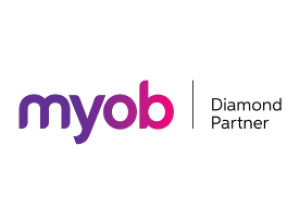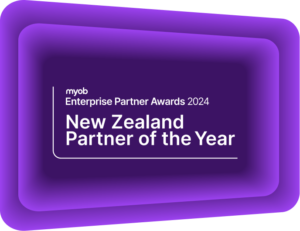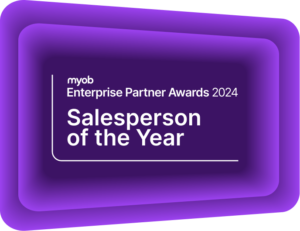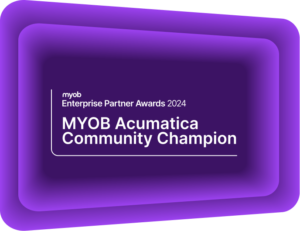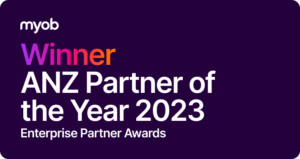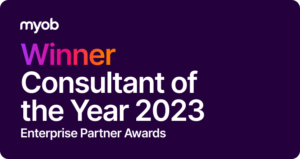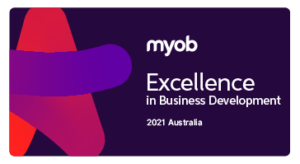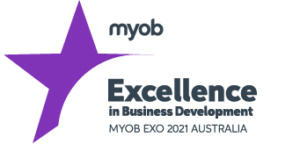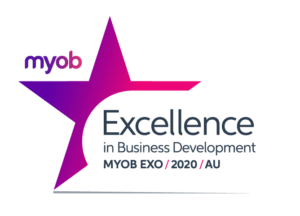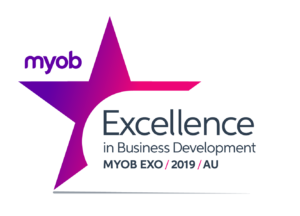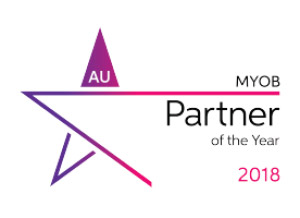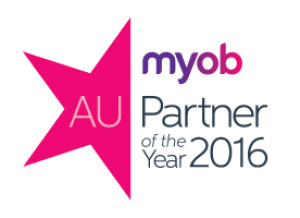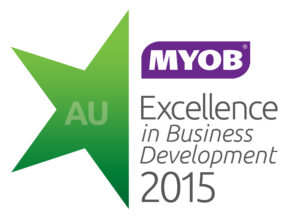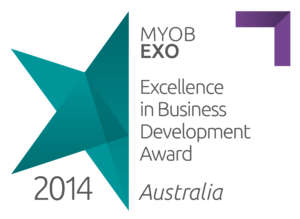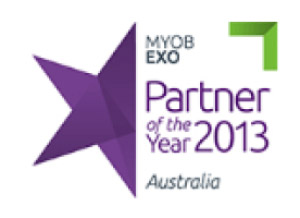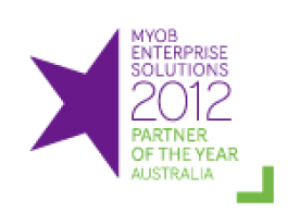What to Expect From Your Enterprise Partner
9 Criteria to help you make the right choice for your ERP implementation.For mid to large sized businesses, it is not a matter of “if” you will need Enterprise Resource Planning (ERP) software but “when”. ERP systems are a centralised hub for businesses to manage financial and non-financial data from a variety of departments and functions across the organisation. Selecting the right software is important, but an equally important decision that is often overlooked is the choice of your enterprise implementation partner.
Why do you need an implementation partner?
ERP systems are sophisticated and customisable, a key difference to “off-the-shelf” accounting systems. With such a broad range of scope you need an expert implementer to make sure it fits your organisation and can manage your complexity. Although every mid to large sized organisation shares some similarities in terms of P&L reports, accounts payable and accounts receivable, each organisation will arrive at this point in a different way. For example, the unique structure of your Chart of Accounts and subaccounts can have ramifications across the entire system.
An implementation partner bridges the gap between your organisation, your processes, your workflows and the system. They combine expert software knowledge with a comprehensive understanding of your organisation to configure your new system to meet your needs. This way, the system will fit your organisation perfectly, improving efficiency instead of holding your team back.
ERP implementers are experts in managing the risks of an implementation. However, they can also be an underlying source of risk to the success of the software in your organisation. Before choosing your new ERP software and implementation partner, you should carefully consider the “implementer risk”. Implementer risk can be quantified as “Does the implementing team have the skills required to fulfil the sales team’s promise and unlock the potential of the software?”

Software Implementation Risk Guide Brochure
Download nowWith the right partner, ERP implementation should take into account the things that make your organisation unique, supported by a system design that allows your team to flourish with the new system. Outlined below are the key considerations businesses should look for in their enterprise partner.
1. Experience
Your enterprise partner should have rich experience, coupled with the right attitude. Stick with the “tried-and-true” rule. Experienced partners are usually better qualified to provide you with knowledge and support. Newer, inexperienced partners are still cutting their teeth. You may be paying for their education. Experienced partners will know the strengths and shortcomings of the ERP system and will not be shy in conveying this to you.
As new partners compete to gain market share, they are tempted to quote low. You may gain a financial advantage by opting for newer, less savvy partners but it is often a case of “penny wise, pound foolish”. ERP implementations have a habit of blowing the budget, and this is more likely to happen with a less experienced partner than with an experienced one. Your investment in an experienced partner includes the “insurance premium” you pay to reduce the risk of a blow-out.
It is always safer to select a partner with proven ERP industry experience, a positive reputation and reference sites, giving you peace of mind.
Kilimanjaro Consulting has proven experience across a range of mid-sized companies. Our company operates nationally with offices across Australia and New Zealand. Our testimonials and case studies indicate that we are a trusted and reliable enterprise partner.
At Kilimanjaro Consulting, our employees are equipped with the skills to guide you through the various phases of the lifecycle of MYOB implementation (see graph below). We are MYOB’s number 1 partner and have a combination of skills in business consulting, accounting and IT.
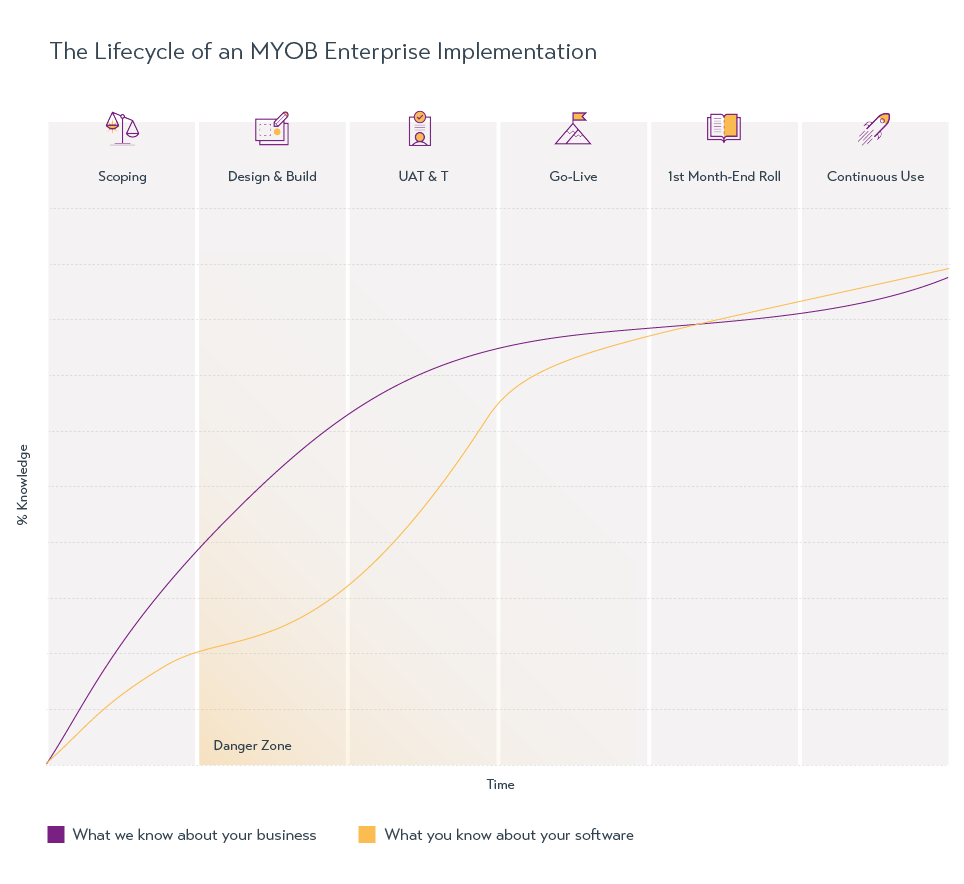
2. Structured Methodology
A structured methodology is a prescribed sequence for the implementation, support, customisation, or other project. This structure does not make the implementation “cookie-cutter” or “one-size-fits-all”. It is a formal process that guides you through the implementation, ensuring that your organisation’s complexity is captured and all objectives are achieved. A structured methodology incorporates lessons learned in the past, informing the consultant of the experience of all prior implementations and ensuring mistakes are not repeated.
Some enterprise partners lack a structured methodology. Without this tested, formal process, it is commonplace for the speed and sequence of steps to be confused, important goals to be missed, and frustration and dissatisfaction to grow. This can also lead to scope creep in the implementation, leading to budget blow-outs and delayed timelines.
At Kilimanjaro, we follow a systematic and structured framework developed with the experience of hundreds of implementations. It guides our current and prospective clients through the implementation phase and beyond. Our structured methodology is a key part of what separates us from other implementation partners and why we deliver successful implementation outcomes so reliably.
3. Training and Support
The right enterprise partner should provide you with continuous training and support. Make sure that trainers have sophisticated educational experience and are qualified. Using a technical person to do training does not always work. Even post-implementation, when getting help-desk support, the person delivering the support should be teaching you. A teaching and training support network with refresher courses and continuous learning for your business is important.
Kilimanjaro offers comprehensive, on-demand training courses on our training portal.
Every interaction with the support team is used as an opportunity to train users. Our team is equipped with the skills and knowledge to improve efficiency and maximise user experience within your ERP system.

Kilimanjaro Consulting Training Brochure
Download now4. Accounting Skills
Due to the nature of most ERP systems, accounting skills and knowledge are essential to being a good enterprise partner. Partners who lack accounting skills will struggle to provide even basic support to clients and fail to understand the processes you rely on to generate reports and maintain compliance.
As the first and longest-standing Diamond partner in the MYOB partner channel, we at Kilimanjaro differentiate ourselves from other partners. Our experienced professionals have in-depth accounting knowledge and skills that can guide you through the most complex technical and accounting problems. We have access to both internal and external qualified accountants to advise when required.
5. Business Process Improvement (BPI)
Continuous improvement in any company is as important as a new system. Implementation should flow into ongoing assistance and Business Process Improvement (BPI). Companies that do not engage in BPI generally lag behind their competitors. Continuous improvement means identifying, analysing and refining your own processes.
Not only will good partners understand the software, but they will also deliver the thought leadership needed to help improve your business. The right enterprise partner should deliver BPI to leverage the ERP solution. They should work to build employee skills to improve procedures and workflows. The adoption of BPI has a direct positive outcome for clients and an overall user experience, as well as an increase in employee performance.
At Kilimanjaro Consulting, we are forward thinkers. We utilise a phased approach to continuously learn about our clients’ business to optimise efficiency. We provide ongoing technical support from qualified experts. Kilimanjaro uses BPI to identify areas of improvement in your business and to show you new technologies that can benefit your overall strategy. This is particularly important in an ever-more-connected world. For more information about BPI, learn the benefits and Kilimanjaro’s approach here.
6. Relationship with Vendor
One of the most important factors to look for in an implementation partner is the long, ongoing relationship between a partner and its vendor (the Software house). An enduring relationship indicates trust and continuing communication.
As the first Diamond Partner in MYOB’s partner channel, Kilimanjaro Consulting has a proven, established relationship with MYOB. We are proud to be directly engaged with the MYOB Product Managers as we influence the direction of product development and share feedback from our clients.
7. Integration Skills
The ability to integrate multiple systems is becoming as important as specialised technical knowledge. Your enterprise partner should be able to provide connected services by being able to integrate “best-of-breed” software into your core ERP system. We have countless examples of clients being badly “burned” by purchasing so-called “integrated” products from high-pressure salespeople, only to find it was not what they expected. Make sure you speak to a trusted advisor if you are considering a third-party product.
8. Team Stability
Businesses need to be aware of the risks posed by an implementer leaving mid-project. Look for a stable team when selecting your partner. There should be a high level of cohesion and low staff turnover.
Maintaining a positive workplace culture is a significant goal at Kilimanjaro. Our unique and tribal culture creates a positive team environment. Our employees value our clients, building long, ongoing relationships in the spirit of a true alliance. Our team is stable. This ensures low risk. Our clients can contact their implementer, not only during the implementation process but also post Go-Live as well.
9. Hunters or Farmers
Your software is a platform for growth for your business, and it should be with you for 7-10 years at least, so a long-term partner is essential.
Those partners who focus on the sale and merely provide implementation services are known as “hunters”. They do not nurture their clients to help them grow and continue to improve efficiency over the lifetime of their system.
“Farmers”, on the other hand, are those who support the growth of businesses over the length of a relationship.
At Kilimanjaro Consulting, we pride ourselves on being “farmers, not hunters”. Having sown the seed of efficiency improvement, we are here for the long haul, nurturing through good and lean times as your needs evolve. We keep pace with new technology that can benefit your business.
Key Factors to Choose an ERP Implementation Partner
In addition to the characteristics discussed here, you should also look for key factors in an implementer’s offering.
Access to a Dedicated Support Desk
Requiring support is an inevitability of using an ERP system. Sometimes you require support to run a certain report, create a new user, or reset a password. Other times there are more serious issues or questions that require expert solutions.
The worst position for your team is to be out in the cold with no one to call. Your implementation partner should offer dedicated support resources to maintain your system long after implementation is completed. Their team will know your system better than anyone else and design fixes and training with your design and unique workflows in mind. Support, and access to it in a timely manner, is critical to your long-term success with the system.
Availability of Experienced Business Analysts
A new ERP system will not improve efficiency in your organisation by itself. If your team manages the same processes manually but in a new system, then nothing has been gained. Involving experienced Business Analysts in your implementation project will mean that new areas for efficiency improvement can be identified and factored into during the design and build stages. Their experience across industries and other successful organisations is a catalyst for further improvement of your processes and productivity.
Comprehensive Training Portfolio
It is crucial to empower your team with the knowledge and confidence to use your new system effectively. Even with customised ERP systems that are built around your organisation’s processes and workflows, in-depth training is required for your team to get the most out of the technology improvement.
ERP systems have a wide variety of modules and features. Your enterprise partner should be prepared with basic training options for standard workflows as well as the ability to provide bespoke training for the unique areas of your system.
Regular Updates on New Versions and Features
Modern ERP systems are continually evolving and updating. New compliance requirements, updated features and functionality, and the rise of emerging technology are all reasons to stay abreast of the latest updates and implement them in your organisation.
Your enterprise partner should keep you updated with the latest features and versions of your ERP system. They are your first port of call for new areas of the system that can improve efficiency for your team. They can test, verify, and implement updates without disrupting your existing workflows and customisations. Ongoing updates are a key part of your software journey and the lifelong partnership you forge with your implementer.
Strong Development and Integration Capabilities
The ability to integrate multiple systems is becoming important as we move towards a best-of-breed and connected world. App-Stacks are growing in popularity, where you use multiple connected systems to manage the entire operational workflow. As an example, a business might use multiple systems for one operation:
- An e-commerce platform to automatically process online sales from your customers,
- A demand planning platform to stay on top of reorders so you always have the right stock in the warehouse at the right time and avoid overordering slow-moving stock,
- A capacity planning and scheduling system to manage manufacturing timelines and materials for optimum stock refills,
- A warehouse management system that speeds up picking, packing, and shipping of each sales order from the e-commerce platform,
- A freight management system to secure the best price on freight and print shipping dockets and barcodes,
- A Customer Relationship Management (CRM) software to keep your customers updated about the progress of their orders, and market to them for future sales,
- A business intelligence platform with dashboards to inform your sales team about customer purchasing behaviour,
- An Accounts Receivable system that automatically manages debtors to improve cashflow and reduce late invoice payments,
- An Accounts Payable system that manages supplier invoices and protects your finance team from fraud, and
- Your core ERP platform that is used for financial processing and report building, so management and finance are updated with a live view of business health.
All of these systems should be integrated into your ERP system and connected to each other, sharing data in real-time. Without integration, this workflow relies on someone manually keying and rekeying data between these systems so it can perform the desired function. Your enterprise partner should have the specialised technical knowledge to provide and integrate these connected services.

Top 20 Acumatica Integrations eBook
Download nowInclusion of Payroll and Workforce Management
Leading ERP systems include Payroll and Workforce Management alongside their Financial and Operational capabilities. Your ERP partner should have specific payroll expertise to guide you through compliant management of your growing team. Enterprise-level payroll systems and regulatory requirements become increasingly complex above and beyond the day-to-day operation of your business. Dedicated payroll implementation and support is essential for the success of your growing organisation.
Large, stable team of Qualified ERP Consultants
Look for a stable team when selecting your partner. Implementers will also have different skills and experience, choosing a partner with a large team means you get access to more experienced consultants and an implementer that knows your industry and requirements. There should be a high level of cohesion and low staff turnover. Cohesion leads to shared knowledge between implementers, perpetuating the value of their individual experience. Structured methodologies and documentation also lower the risk involved if an implementer leaves mid-project.
Kilimanjaro Consulting – the ERP Partner you can Trust
Kilimanjaro Consulting has the largest, most experienced team of MYOB ERP implementation consultants across Australia and New Zealand. Our goal is to improve efficiency in our client’s business through the clever use of proven and innovative technology.
There are many differences that help us stand out from other software partners:
- Proven industry experience and a positive reputation,
- A structured implementation methodology to guide both you and the implementer through the process,
- Ongoing training and support during your implementation and after go-live,
- The accounting skills to ensure you go live with a reconciled system,
- A strong relationship with the software vendor allows us to influence enhancements to the software that might be useful to your own organisation,
- Specialised technical knowledge to integrate best-of-breed connected services into your system,
- A stable team with high levels of staff cohesion and collaboration and low staff turnover.
If you are partway through a failed implementation, then switching to Kilimanjaro as your enterprise partner is simple and will set your business on the right course. We can guide you through every step of your software journey, from implementation, customisation, support, integration, and ongoing business process improvement.

How to choose an implementation partner eBook
Download nowIf you have any more enquiries, please email us at sales@kilimanjaro-consulting.com, or give us a call at 1300 857 464 (AU) or 0800 436 774 (NZ).

